Agriculture & Environment
Improving Agricultural Services in Northern Uganda: Mak staff train 546 extension workers
Published
3 years agoon
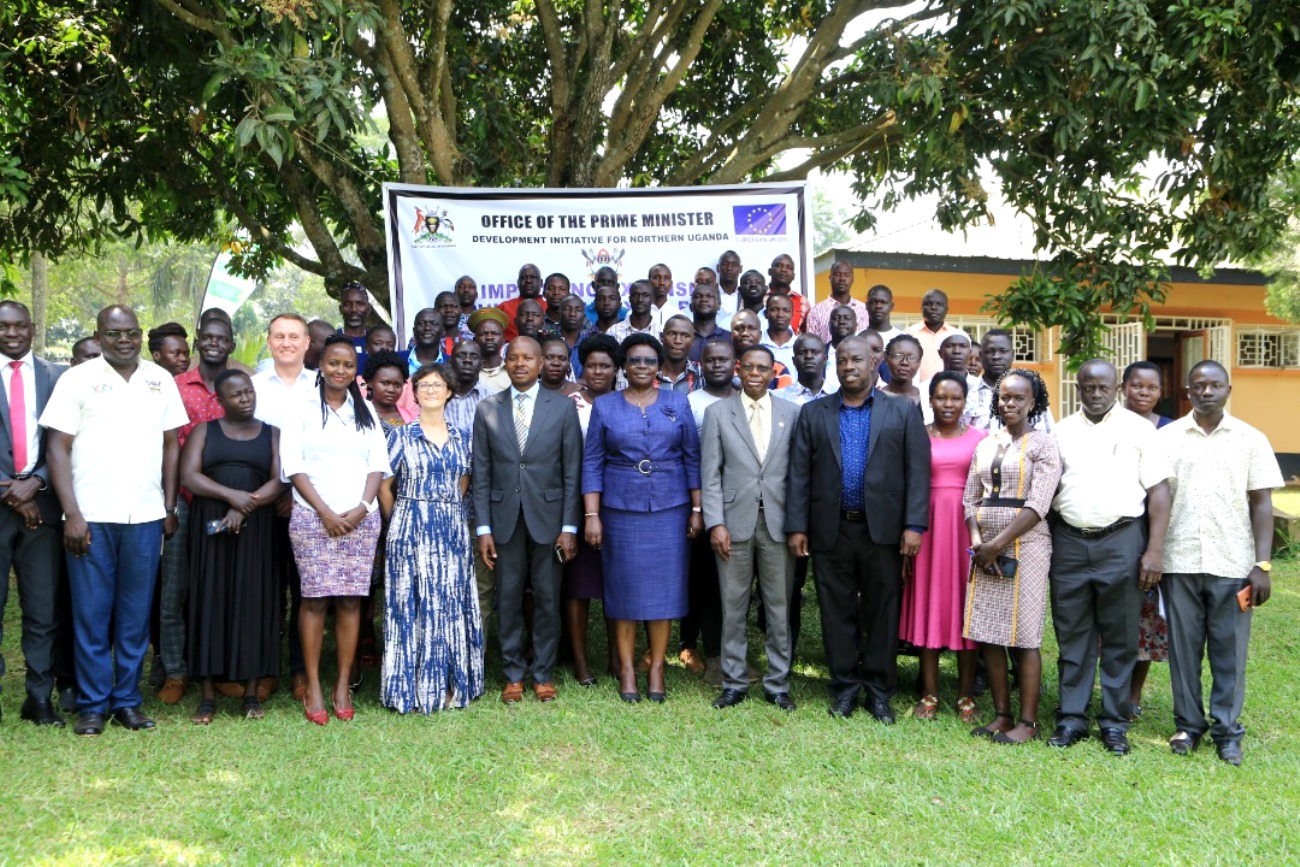
Makerere University has trained 546 extension workers from Northern and Eastern Uganda. The five-month training that started on 5th September 2022 and ended January 2023 has been conducted by academics from the College of Agricultural and Environmental Sciences (CAES), College Natural Sciences (CoNAS), College of Veterinary Medicine, Animal Resources and Biosecurity (CoVAB), Makerere University Business School (MUBS), and officials from the Ministry of Agriculture, Animal Industry and Fisheries (MAAIF). All the trainings were conducted at Makerere University Agricultural Research Institute Kabanyolo (MUARIK), and coordinated by Dr Bernard Obaa, Senior Lecturer in the Department of Extension and Innovation Studies at CAES. Through a programme titled; “Provision of Training Services to Technical Staff of Local Governments for improved Extension Service Delivery to Farmers in Northern Uganda” the extension workers have been trained in the areas of Integrated Pest and Disease Management, Climate Smart Agriculture and Postharvest Handling, Animal Feed Formulation and Dry Season Feeding, Fish Feed Formulation and Feeding, Animal Breed Improvement through Artificial Insemination, Fish Breeding and Hatchery Management, Apiculture (Queen rearing and breeding and value addition in honey), Farmer Institutional Capacity Development, Agribusiness and Market Linkages, and Financial Management.
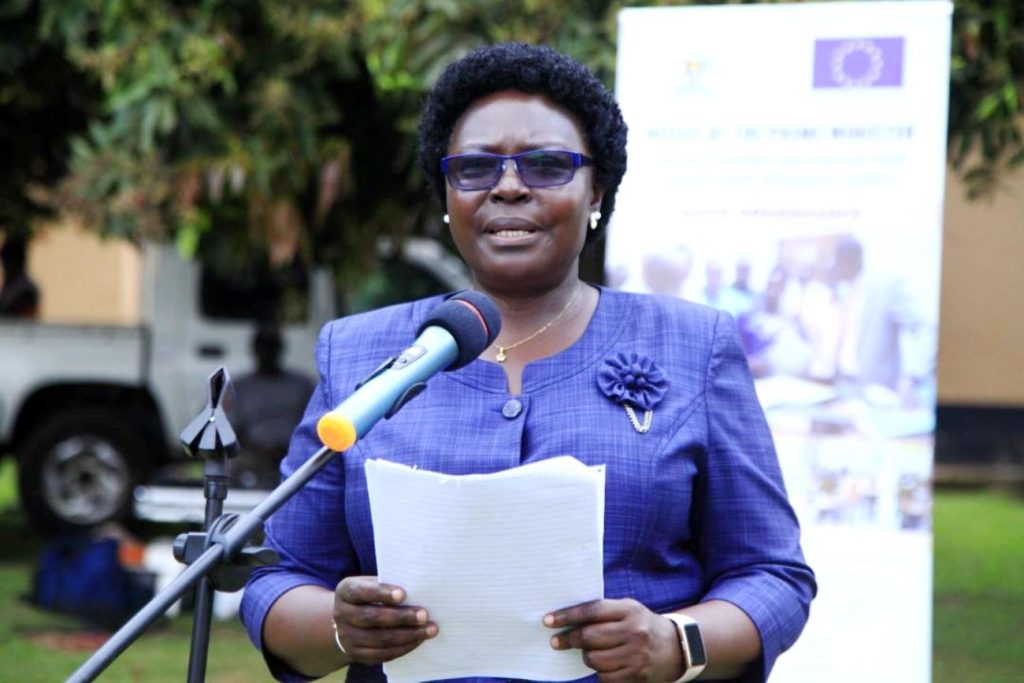
The training was officially closed by the Minister of State for Northern Uganda, Hon. Grace Freedom Kwiyucwiny at a ceremony held at MUARIK on 27th January 2023. The closing ceremony was attended by a number of dignitaries from the European Union, the Office of the Prime Minister, MAAIF, NARO Uganda, district local governments, as well as members of staff from Makerere University led by the Academic Registrar, Prof. Buyinza Mukasa who represented the Vice Chancellor.
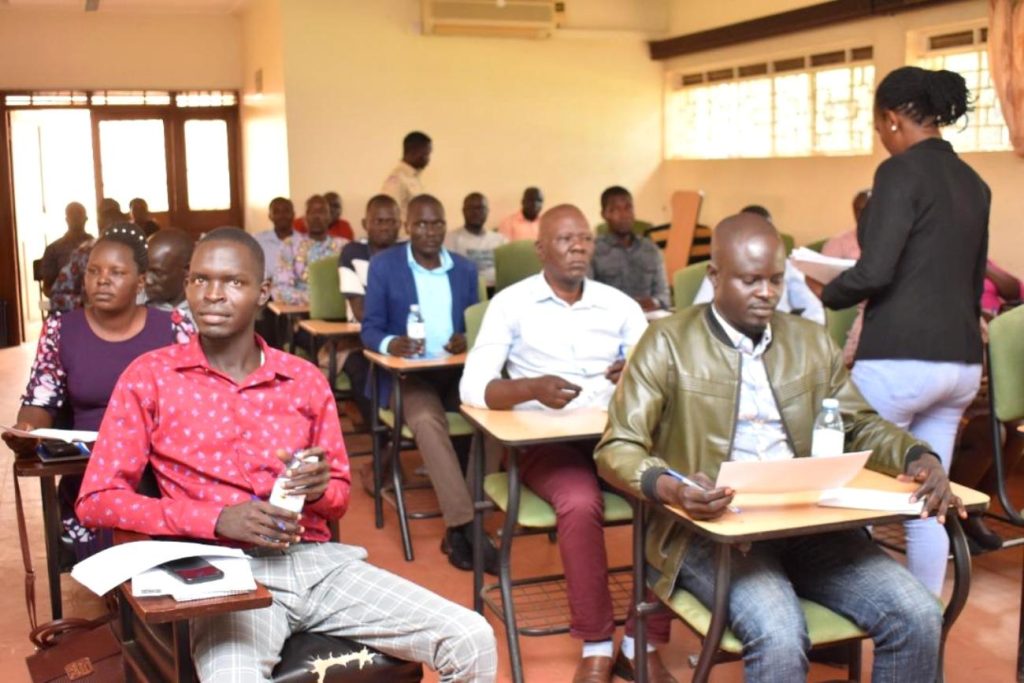
Background to the training programme
While notable strides have been made to enhance household food and nutrition security, reduce poverty and improve household incomes through agriculture, Northern Uganda is still lagging behind due to the long-term insurgency that left many households disintegrated. Uganda’s Vision 2040, the National Agricultural Extension Policy (NAEP), the National Agricultural Policy (NAP) and the National Agricultural Extension Strategy (NAES) strategically place agriculture as a key driver to achieve socio-economic transformation in the country. The Northern Uganda Region has immensely benefited from massive investments in agricultural infrastructure, but dismal efforts have been made to enhance actual service delivery. As a result, functional extension systems that efficiently and effectively respond to challenges that farmers experience along the value chain of key agricultural commodities have not been given adequate attention in the region. Consequently, the farmers continue to be constrained in terms of accessing inputs and advisory services on modern agronomic practices and market opportunities. Although the district and sub-county extension officers are expected to provide this service, they have inadequate knowledge and skills to enable them render improved and relevant advisory and support services to farming communities.
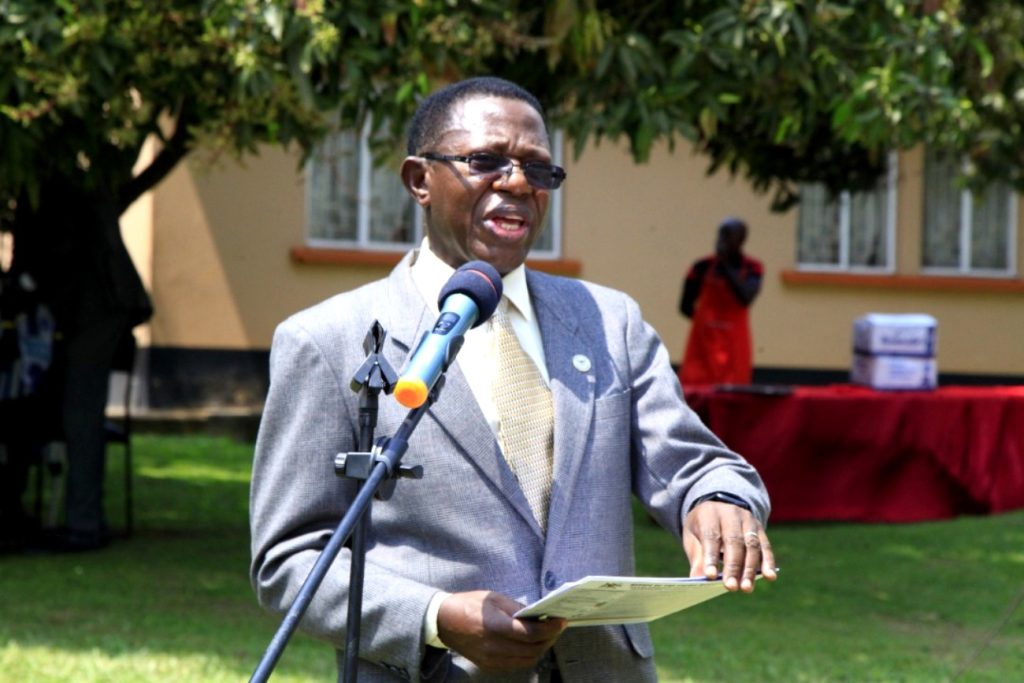
Last year, the Office of the Prime Minister through the Development Initiative for Northern Uganda (DINU) contracted Makerere University to offer the training services. DINU is a Government of Uganda programme supported by the European Union (EU) and supervised by the Office of the Prime Minister. It is a multi-sectoral programme aimed at improving livelihoods in 41 districts in the five sub-regions of Acholi, Karamoja, Lango, Teso, and West Nile for a duration of six years (2017-2023). The 150.6 million Euro programme covers interventions in three interlinked sectors; (1) Food Security, Nutrition and Livelihoods; (2) Infrastructure (transport, logistics, water; and (3) Good governance.
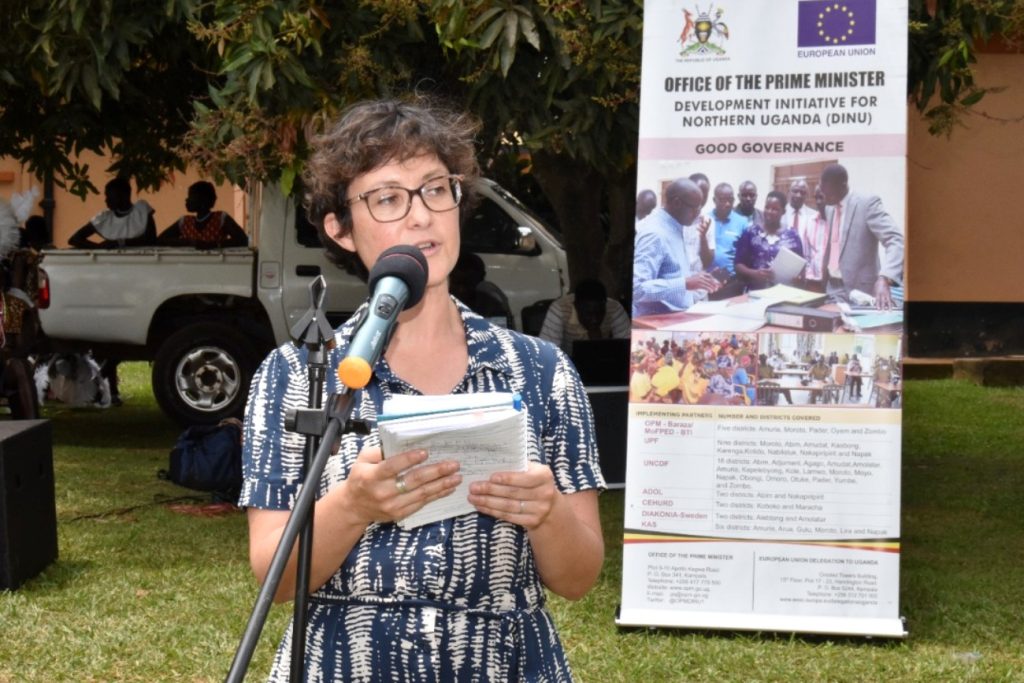
Objectives of DINU
- To increase food security, improve maternal and child nutrition, and enhance household incomes through support to diversified food production and commercial agriculture, through improving household resilience – notably to climate change, and through women empowerment
- To increase trade of commodities within the region, in the country and within neighbouring countries through improved transport infrastructure
- To strengthen capacity, gender-responsiveness, good governance and the rule of law at the level of local government authorities and empower communities to participate in improved local service delivery
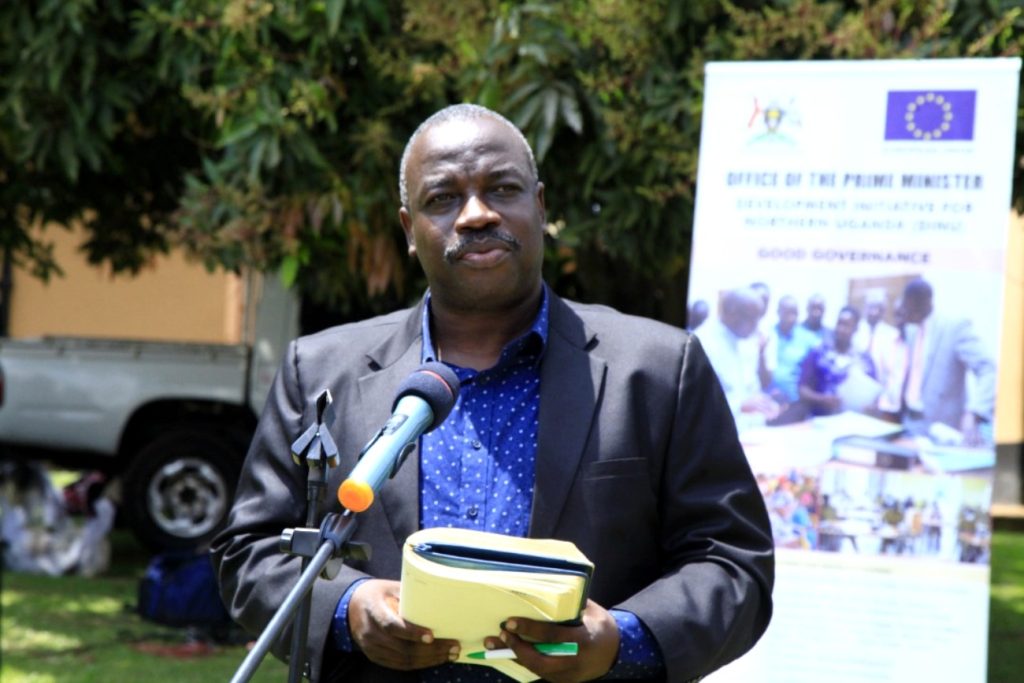
Remarks by the Minister of State for Northern Uganda
Speaking at the closing ceremony held at MUARIK on 27th January 2023, the Minister of State for Northern Uganda, Hon. Grace Freedom Kwiyuchiny, said the greatest challenge affecting Northern Uganda was over reliance on subsistence farming. “This has kept us in poverty. The training of 546 extension workers will help improve the situation. On behalf of the people of Northern Uganda, I extend our appreciation to the Office of the Prime Minister for this and many other interventions aimed at restoring peace in the region. I also thank the EU for funding the project, and Makerere University for offering the training services,” she noted.
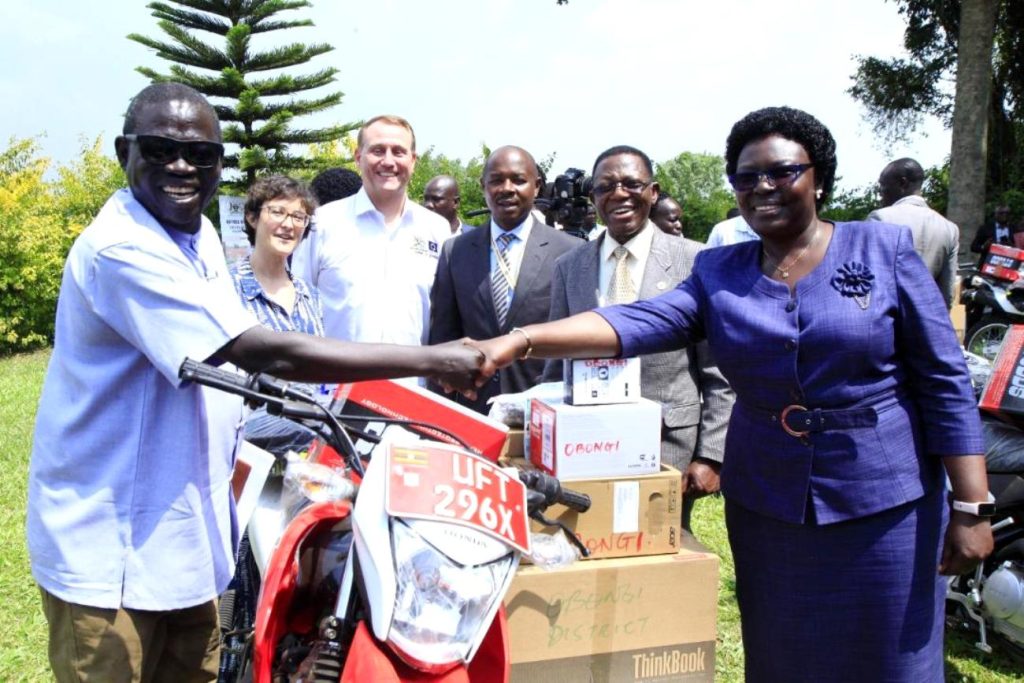
The Minister handed over equipment to representatives of extension workers from 18 districts to support their activities. The equipment included motorcycles, GPS machines, Artificial Insemination kits, laptops & fish pond water testing kits procured by Office of the Prime Minister with support from the EU.
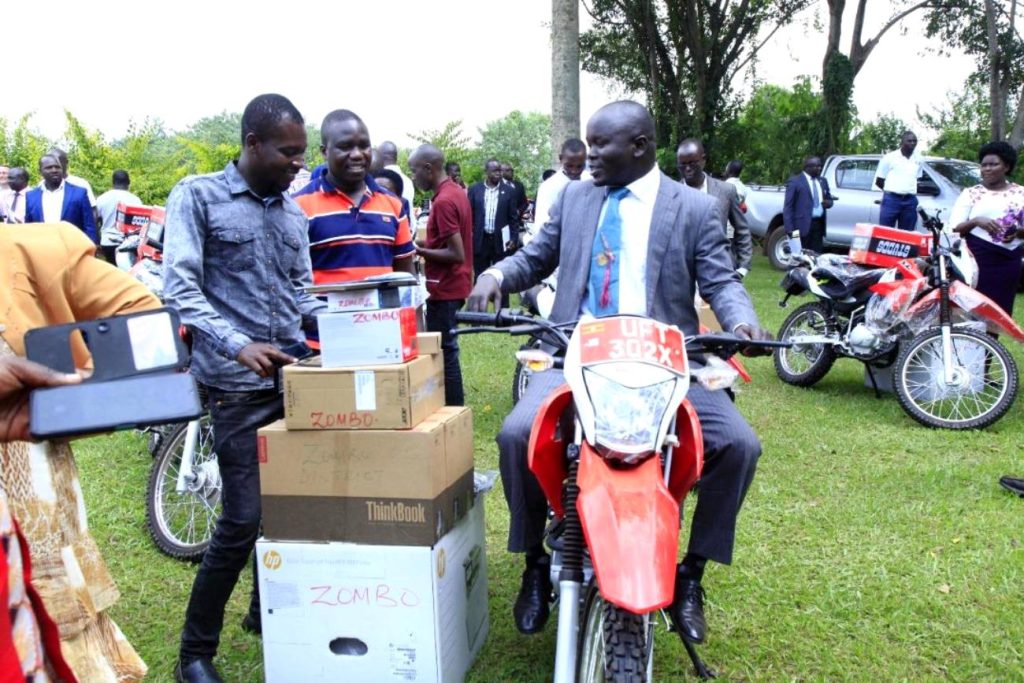
Remarks by the representative of Makerere University Vice Chancellor
On behalf of the Vice Chancellor, Makerere University Academic Registrar, Prof. Buyinza Mukadasi appreciated the Office of the Prime Minister for the timely intervention. “These trainings have been conducted timely at the start of the implementation of the Parish Development Model (PDM). We are confident the new knowledge and skills acquired through these trainings will enable the frontline extension workers to provide better support to our farmers. This will in turn enhance household food and nutrition security, reduce poverty and improve household incomes in the Northern and Eastern Regions that were severely affected by the LRA insurgency, he noted, expressing gratitude to the EU for supporting the programme. He also appreciated the Government of Uganda for supporting various development initiatives in the country. “With the wise guidance of the President of the Republic of Uganda, H.E. Gen. Yoweri Kaguta Tibuhaburwa Museveni, the Government of Uganda has so far extended support to 750 research projects at Makerere University worth UGX90 billion. Through these projects, our researchers have come up with a number of innovations that directly address community challenges.” Prof. Buyinza implored the participants to use the knowledge and skills acquired to improve service delivery in their respective communities.
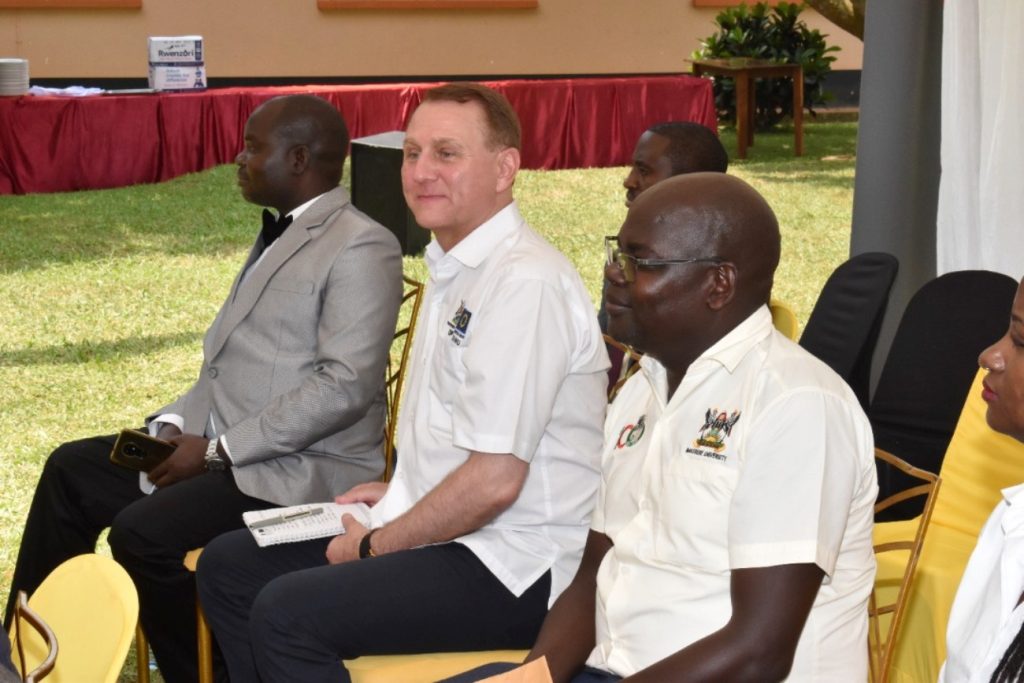
Remarks from MAAIF
Dr. Patience Rwamigisa, Director, Agriculture Extension Services at MAAIF noted that efficient extension systems are critical for building strong agricultural systems. “The training is therefore timely. I thank the trainers from Makerere University for the job well done, and the European Union and Office of the Prime Minister for supporting the programme.
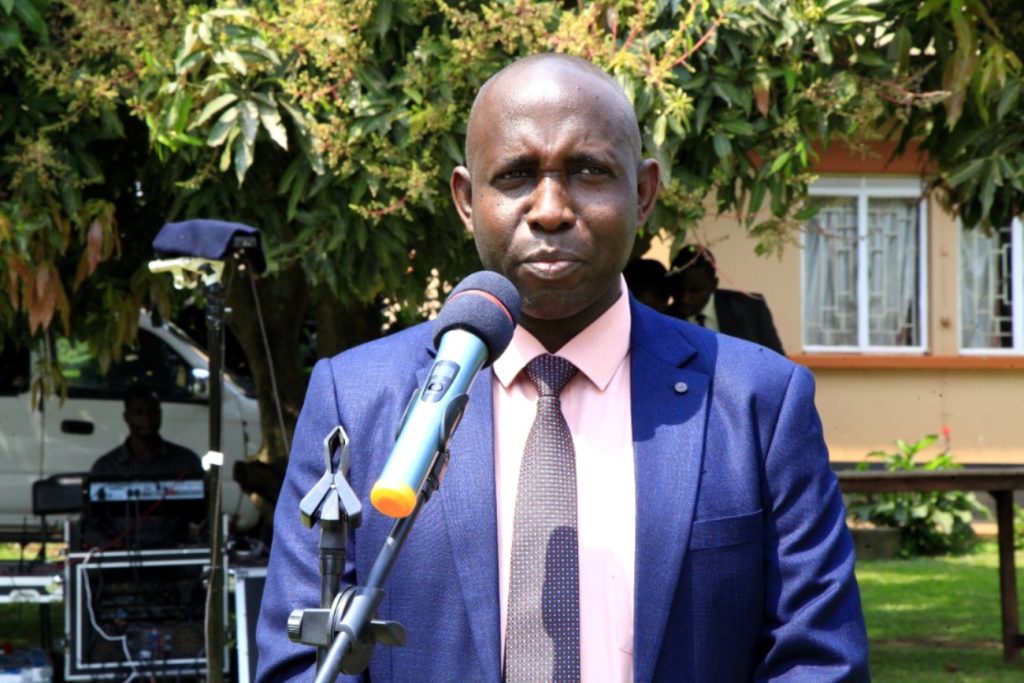
EU support
In his remarks, the Head of the EU Delegation in Uganda, Ambassador Jan Sadek said the EU had extended considerable support to different local governments with the aim of improving service delivery and livelihoods. “I want to thank all those who have participated in the training of 546 extension workers from Northern & Eastern Uganda. We hope the knowledge and skills acquired will lead to better agricultural practices”.
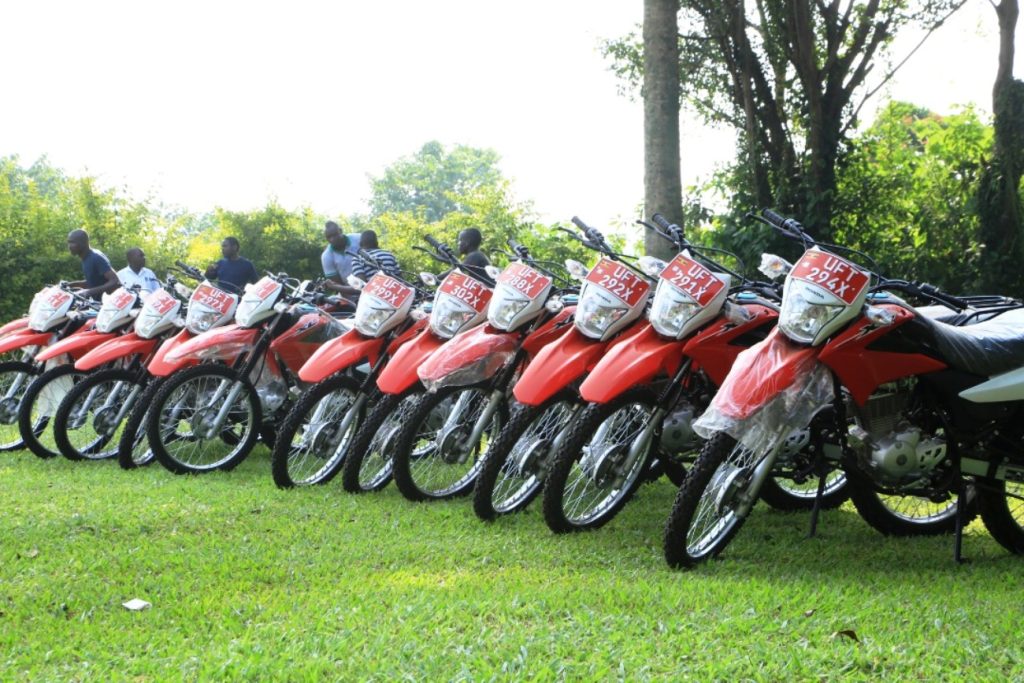
Representing the Principal of CAES, Prof. Gorettie Nabanoga, the Dean School of Agricultural Sciences, Dr John Baptist Tumuhairwe expressed gratitude to the Office of the Prime Minister for choosing Makerere to conduct the training. He appreciated the EU for the funding and the trainers for committing time to offer the service. He appealed to the trainees to use the knowledge and skills acquired to promote climate smart agriculture in their respective districts.
The extension workers expressed gratitude for the training noting that it would enable them perform their duties effectively. They appealed for refresher trainings and improvement of their working conditions.
You may like
-


Over 9,200 to graduate at Makerere University’s 76th Graduation
-


76th Graduation Highlights
-


Meet Najjuka Whitney, The Girl Who Missed Law and Found Her Voice
-


Makerere University School of Public Health Graduates First Cohort of Cost-Effectiveness Analysis Short Course
-


Climate variability found to shape malaria trends in Yumbe District
-


Mak hosts First African Symposium on Natural Capital Accounting and Climate-Sensitive Macroeconomic Modelling
Agriculture & Environment
Mak hosts First African Symposium on Natural Capital Accounting and Climate-Sensitive Macroeconomic Modelling
Published
4 days agoon
February 20, 2026
African economies are increasingly exposed to climate-related shocks that threaten development gains, fiscal sustainability, and macroeconomic stability. From extreme weather events and biodiversity loss to the depletion of natural capital, climate risks are reshaping economic realities across the continent. Yet many macroeconomic frameworks used in public finance and planning continue to overlook climate and nature-related risks and the long-term benefits of resilience and adaptation investments.
To address this emerging reality, over 250 participants from Africa, Europe and beyond, convened at Makerere University – Kampala, on the 12th and 13th of February 2026, to participate in the First African Symposium on Natural Capital Accounting and Climate-Sensitive Macroeconomic Modelling.
Following the theme, “Climate-Sensitive Macroeconomics: Rethinking Growth in Africa’s Natural Resource Base, the hybrid symposium organized by Makerere University through the Centre of Excellence for Africa Climate-Sensitive Macroeconomic Modelling (CEACM) within the School of Economics, under the College of Business and Management Sciences (CoBAMS), the Environment for Development Initiative (EfD), and the Ministry of Finance, Planning and Economic Development (MoFPED) in Uganda, brought onboard ministers, leading economists and planners, researchers, policy makers, the academia, development partners, climate change experts and the media.
The Symposium being the first of its kind on the continent, reflected Africa’s growing determination to work collectively in confronting shared development challenges, building on recent momentum such as the formation of Pan-African Finance Ministers Forum for Climate Action (PAFMCA).
Featuring speeches and presentations from notable speakers and partners, a keynote address on Natura Capital Accounting and Climate Change Nexus in Africa and their impact on Fiscal Policy, panel discussions, expert opinions, and exhibition kiosks (World Café), the symposium presented a platform to strengthen Africa’s analytical and institutional capacity to integrate climate and natural capital considerations into macroeconomic and fiscal policy.
Vice Chancellor underscores the role of universities
Welcoming the delegates to Makerere University, the Vice Chancellor-Prof. Barnabas Nawangwe emphasized that universities must lead innovation and collaborative research efforts to support collective climate change mitigation across the continent.
In the same vein, he advocated for strong collaboration between universities in Africa and government Ministries. “Makerere’s collaboration with the Ministry of Finance, Planning and Economic Development, stands as a shining example of how academia and government can strengthen economic management,” he said.

Prof. Nawangwe revealed that the collaboration between Makerere University and the Ministry, has strengthened macroeconomic modelling, fiscal policy analysis, and technical capacity within government. In addition, the partnership led to the establishment of the Centre of Excellence for Africa Climate-Sensitive Macroeconomic Modelling, bridging academic scholarship with real-world policy application.
“We have jointly established the Centre of Excellence for Africa Climate-Sensitive Macroeconomic Modelling. The Centre (established in August 2025) is anchored within the School of Economics in the Department of Policy and Development Economics, under the Master of Science in Economic Policy and Investment Modelling, a program jointly facilitated by Makerere University, the Ministry of Finance, Planning and Economic Development and the Bank of Uganda,” he mentioned.
Climate and Economic transformation are inseparable
The Vice Chancellor highlighted the critical intersection between economic transformation and environmental sustainability, noting that economies in Africa, heavily dependent on natural resources, face unprecedented pressures from climate shocks, biodiversity loss, and environmental degradation. Convinced that economic growth cannot be pursued in isolation from climate and environmental realities, he stressed the importance of integrating natural capital accounting and climate considerations into national development strategies.
Prof. Nawangwe advocated for shared responsibility of universities, research institutions, and policymakers to develop innovative analytical tools, responsive policy frameworks, and strong institutional capacities that promote sustainable growth while safeguarding environmental assets for future generations.
The Vice Chancellor commended UN PAGE and the Global Green Growth Institute (GGGI) for funding the symposium, as well as, other stakeholders namely the European Union and the Coalition of Finance Ministers for Climate Action (CoFMCA), Ministry of Water and Environment (MoWE), National Planning Authority (NPA), Uganda Bureau of Statistics (UBOS), the National Environment Management Authority (NEMA) for being reliable partners.
Integrating Climate into Fiscal Policy
During the opening ceremony, the Minister of Finance, Planning and Economic Development, Hon. Matia Kasaija underscored the urgency of embedding climate considerations into economic planning.
“As Ministers of Finance, we are often confronted with difficult trade-offs. Our task is to balance the needs of today with sustainability for future generations,” said Hon. Kasaija, in a speech read by Hon. Henry Musasizi, the Minister of State for Finance (General Duties).

The Minister guided that traditional macroeconomic models focusing only on growth, inflation, and fiscal balance are inadequate in an era of climate shocks. He affirmed that African economies are facing interconnected challenges which directly impact economic growth. He stressed that traditional macroeconomic frameworks must evolve to systematically incorporate environmental degradation and climate shocks, whose consequences can no longer be ignored in policy analysis.
“For countries such as Uganda, whose development prospects are closely linked to natural resources and the climate-sensitive sectors, these challenges are not abstract. They affect livelihoods, public finances and long-term economic resilience,” he mentioned.
The Minister emphasized that natural capital accounting and climate-sensitive macroeconomic modelling are vital for valuing natural assets, assessing environmental costs, and guiding sound investment decisions.
Protecting Africa’s Natural Capital
Hon. Beatrice Atim Anywar, Minister of State for Environment, emphasized the urgent need to protect Africa’s ecosystems. “Africa stands at a defining crossroads. Our economies remain anchored in natural capital—forests, water resources, biodiversity, land, and ecosystems—which sustain life, generate fiscal revenue, and underpin development,” she said.
She warned that climate-related shocks are already undermining growth and public investment. “Floods, droughts, land degradation, biodiversity loss, and water stress are no longer distant risks. They are present realities, already affecting productivity and macroeconomic stability,” she said.
She emphasized the need for improved economic models that account for environmental and climate risks: “Traditional macroeconomic frameworks have not adequately captured climate risks or the long-term economic benefits of resilience and adaptation. This limits our ability to make informed policy decisions as Africa pursues economic transformation, energy security, and fiscal stability,” she stated.
Hon. Anywar highlighted collaboration with GIZ, Makerere University, and government ministries, which led to the development of the MONCAP (Model for Natural Capital Policy Assessment). “This tool is being used to assess natural capital assets for climate change, energy transition, and their linkages to the macroeconomy. It supports budgeting by estimating the cost of depleted natural capital assets,” she said.
“Water security, forest conservation, ecosystem restoration, and climate adaptation are not costs. They are investments in Uganda’s long-term economic stability, productivity, and prosperity.”
Stakeholders urged to transform climate threats into opportunities
Adam Sparre Spliid, the Deputy Head of Mission, Danish Embassy said: “Integrating climate risk and natural capital into our macroeconomics frameworks is not only academic exercise, it is a massive de-risking strategy for private investment. By bridging the gap between government policy and planning, academia and research, and the private markets, we transform climate threats into tangible opportunities.”
Sustainability includes youth, jobs and human well-being
Dr. Steven Stone, Chair of the UN PAGE Management Board, emphasized that sustainability extends beyond the environment to encompass youth, jobs, economic growth, and human well-being. “While the environment is Africa’s foundational source of wealth, sustainable development requires balancing ecological stewardship with economic progress, including income and employment for the youth which are critical priorities for countries such as Uganda.”
Dr. Stone highlighted that UN PAGE, originating from the Rio+20 Conference, supports climate-sensitive economic policy in Africa, emphasizing that dialogue, scenario-building, cross-sector collaboration, and strong partnerships are key to advancing sustainable, inclusive, and climate-resilient development.
Africa’s Wealth Declining
In the keynote address titled, Natural Capital Accounting and Climate Change Nexus in Africa and their Impact on Fiscal Policy, Paul Jonathan Martin, Manager of Environmental Operations at the World Bank for Eastern and Southern Africa, and a specialist with over 30 years in climate and natural resources, warned that Africa’s overall wealth is under threat due to declining renewable natural capital.
“Produced capital has increased by 20%, human capital by a third, but renewable capital has declined by 30%,” Martin said. “When combined, Africa’s overall wealth trajectory has been weakening since 2010.”
He stressed that natural resources must be treated as economic assets requiring systematic accounting: “Africa’s rich natural resources are fundamental for sustainable development,” he said.
Citing examples from Ethiopia and Kenya, he highlighted successful integration of natural capital into public investment and budget decisions. “In Ethiopia, there are payments for ecosystems and investment prioritization tools. In Kenya, natural capital accounting integration into budgets has strengthened public investments. Climate change has deep, cascading effects across sectors, but Africa has major potential to lead climate solutions,” he said.

Martin also highlighted the economic benefits of climate adaptation: “From 2020–2050, the cumulative effect of adaptation on Uganda’s GDP is positive. Without action, under a dry/hot climate future, GDP could significantly deviate from projected growth paths.”
Drawing on insights from over 70 country climate and development reports produced by the World Bank, the keynote speaker highlighted the profound macroeconomic impacts of climate change across Africa. He stressed the importance of integrating climate and natural capital into macroeconomic planning. He noted that Africa’s forests, water systems, and biodiversity are vital for sustainable development but face growing threats from climate change, environmental degradation, and climate-related disasters that undermine productivity, public investment, and economic stability.
He observed that traditional macroeconomic models often fail to capture the value of natural assets and regulating ecosystem services, which are critical to both economic stability and resilience but are largely excluded from GDP calculations.
Africa-Led Solutions
Prof. Edward Bbaale, Principal, College of Business and Management Sciences (CoBAMS), stressed the importance of developing African-led solutions. “We need to champion the Africa-led model. We need approaches that fit our unique context. Africa is not here to take in other frameworks blindly,” he said.
By supporting research, training, policy dialogue and modelling innovation, the Centre of Excellence for Africa Climate Sensitive Macroeconomic Modelling (CEACM) positions Makerere University as a regional hub for advancing climate-sensitive macroeconomic policy across Africa.
He highlighted CEACM’s capacity-building programs: “Our goal is to ensure African Ministries of Finance have home-grown expertise to integrate climate and natural capital considerations into fiscal and macroeconomic policy. This is critical for long-term resilience and sustainable development,” he said.
The Principal explained that establishment of independent research centres enables Makerere University to go beyond traditional academic instruction and focus deeply on societal challenges, particularly those related to climate change, environmental degradation, and biodiversity loss.

He reported that the Centre of Excellence for Africa Climate-Sensitive Macroeconomic Modelling is structured to advance methodological innovation, develop new data systems, and strengthen climate-sensitive macroeconomic tools that are tailored to the African context.
MONCAP Model for Policy Assessment
Dr. Peter Babyenda, a member of faculty at CoBAMS, demonstrated MONCAP (Model for Natural Capital Policy Assessment), which integrates climate and natural capital variables into fiscal and macroeconomic planning.
“MONCAP allows policymakers to estimate the economic cost of depleting natural assets such as forests, wetlands, and water resources. It helps simulate policy options and determine how investments in natural capital yield long-term benefits,” Babyenda said. “We came up with this model to aid the Ministry of Water and Environment. This model is open—you can extend it,” he added.

He highlighted capacity-building initiatives, including short courses and the Master of Science in Macroeconomic and Investment Modelling, designed to train economists to incorporate natural capital and climate into policy planning.
International Perspectives
Sweetman Liam, Ireland’s Finance Minister, highlighted the economic value of ecosystems: “There is a deeper value of landscapes in flood prevention and biodiversity. Decision-making was informed, and people started understanding economic value,” he said.
Prof. Chukwuone Nnaemeka of the University of Nigeria emphasized collaboration with national statistical agencies: “We coordinate with the National Bureau of Statistics to develop natural capital accounting metrics. Increase the use of Natural Capital Accounting in decision-making,” he stated.
Technical and Parallel Sessions
The afternoon session featured three parallel sessions focusing on Natural Capital Accounting Methodologies and Best Practices, Climate-Sensitive Fiscal and Economic Modelling, and Natural Capital Accounting and Model Uptake and Use.
Drawing on diverse expertise, the panels highlighted innovative approaches and demonstrated that natural capital is not an environmental afterthought, but a central pillar of sustainable economic and policy planning.
The first day of the African Symposium drew to a close with interactive exhibitions at the World Café, where case studies and practical demonstrations highlighted innovative approaches to integrating climate and natural capital into economic planning. Participants actively engaged in discussions and networking, forging collaborations that promise to advance climate-sensitive fiscal and development strategies across Africa, setting a strong and optimistic tone for the days ahead.
Agriculture & Environment
Uganda Martyrs Namugongo Students Turn Organic Waste into Soap in an Innovative School Project on Sustainable Waste Management
Published
5 days agoon
February 20, 2026
*****The students were supervised by researchers from the College of Agricultural and Environmental Sciences (CAES) at Makerere University, led by Prof. Fred Kabi.
The garbage challenge
With urbanization rates rising rapidly across Uganda, municipal solid garbage generation in the country’s cities is projected to increase by more than 40 percent by 2050. The growing burden of unmanaged garbage, particularly organic garbage, continues to pose environmental and public health risks, underscoring the urgent need for innovative and sustainable solutions.
It is against this backdrop that Senior Four students of Uganda Martyrs Secondary School Namugongo undertook a project to demonstrate how local market garbage challenges can be transformed into opportunities for sustainable development.

Addressing the garbage Challenge
As part of their academic project under the competence-based curriculum, the students were tasked with identifying real-world challenges within their communities and developing practical solutions using locally available resources. Through research and field observations, they identified poor garbage management, particularly the accumulation of organic waste at major dumping sites such as Kiteezi Landfill, as a critical issue.
At these sites, unsorted solid garbage often accumulates uncontrollably, sometimes leading to collapses that pose serious environmental and public health risks including water contamination by leachates, persistent foul odors, and disease outbreaks.

Rather than solely viewing solid market garbage as a problem, the students recognized its untapped potential within the biodegradable fraction of market garbage streams. Their innovative solution was to convert organic solid market waste (biodegradable garbage) into an industrial raw material for soap production by utilizing saprophagous Black Soldier Fly larvae (BSFL) to accumulate lipids and applying the scientific process of saponification.
Makerere University Support to the project
The students’ project was supervised by Prof. Fred Kabi together with technicians from the College of Agricultural and Environmental Sciences (CAES) at Makerere University. Prof. Kabi and his team have been actively researching on Black Soldier Fly Larvae (BSFL) as a bio-waste management technology capable of converting biodegradable solid municipal garbage and farm waste into valuable by-products such as organic fertilizers, animal feeds, soap, and biodiesel.
Working in collaboration with Ento Organic Farm Uganda Ltd, the researchers have demonstrated how insect-based waste conversion systems can support a circular economy by transforming biodegradable waste into industrial raw materials.

According to Prof. Kabi, the five young garbage entrepreneurs (students) began their project by collecting information on household garbage management practices. After analyzing the data, they engaged stakeholders along the garbage value chain to brainstorm all-inclusive, source-based waste management strategies.
“The students developed a solution that links efficient waste management at garbage generation source to support production of organic fertilizer, insect protein for animal feeds, and soap, which is only possible with biodegradable garbage,” Prof. Kabi explained. “This approach of the Competence Based Curriculum (CBC) for lower secondary schools supports the concept of taking Makerere University to the community of budding scientists while promoting sustainable community development through a circular economy.”
From Market Waste to Soap Bars
The Team leader, Ms. Ivy Stephanie Kitali explained the step-by-step scientific process behind the project. The students began by collecting organic waste from local markets, which was then shredded to prepare it for the larvae as a substrate. “Black Soldier Fly larvae were then introduced to the prepared waste. The larvae efficiently consumed the organic matter, greatly reducing its volume while accumulating lipids (fats) in their bodies. After maturation, we separated the larvae from the remaining waste, euthanized through blanching and dried it. Oil was then extracted from the dried larvae using ethanol as a solvent. This lipid-rich oil became the primary ingredient or raw material for soap production. To enhance the final product, the larvae oil was blended with minute quantity of sunflower oil before adding sodium hydroxide, initiating saponification, the chemical reaction that transforms fats and oils into soap,” she explained. The process ultimately yielded usable bars of soap derived entirely from what had once been discarded as unwanted market waste/garbage.

Building Skills and Sustainable Innovation
Beyond producing soap, the project provided students with hands-on training in scientific research, waste management techniques, bio-chemistry, and sustainable innovation. They gained practical exposure to insect-based biotechnology and learned how environmental challenges can be addressed through science-driven by entrepreneurship.
Agriculture & Environment
Makerere University Researchers Release New Soybean Variety, MakSoy 7N
Published
5 days agoon
February 19, 2026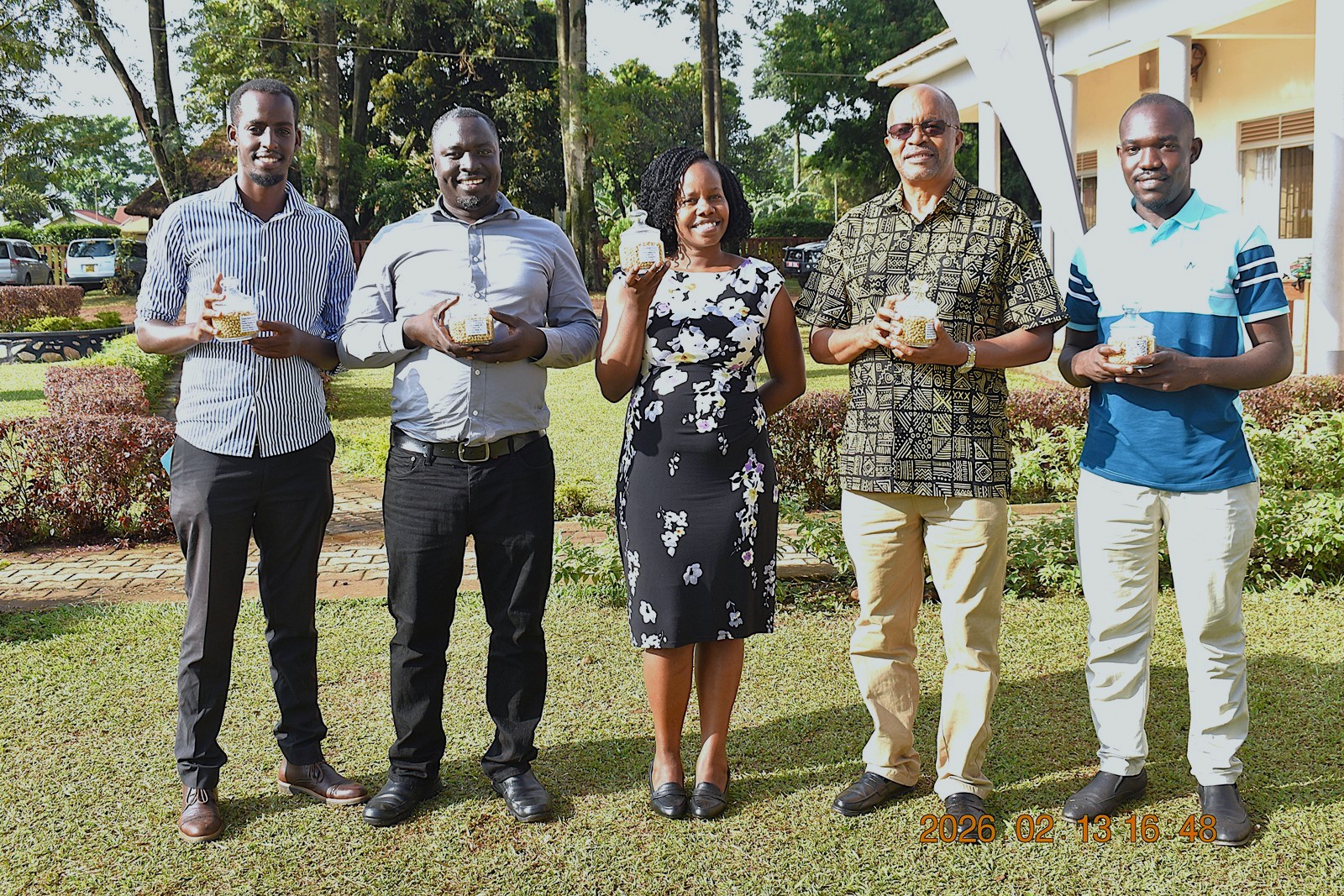
The National Variety Release Committee (NVRC) has officially approved Maksoy 7N, the latest soybean variety developed by the Makerere University Centre for Soybean Improvement and Development (MAKCSID) in the Department of Crop Science and Horticulture, College of Agricultural and Environmental Sciences at Makerere University. The approval was announced during the committee’s 47th meeting at the National Agricultural Research Laboratories (NARL) in Kawanda on 13th February 2026.
The NVRC, chaired by Dr. Joseph Kikafunda, is composed of stakeholders from the Ministry of Agriculture, Animal Industry, and Fisheries (MAAIF), research institutes, seed regulatory agencies, farmers’ organizations, and private seed companies. The committee evaluates new crop varieties for performance and traits before official release, helping to enhance national food security.
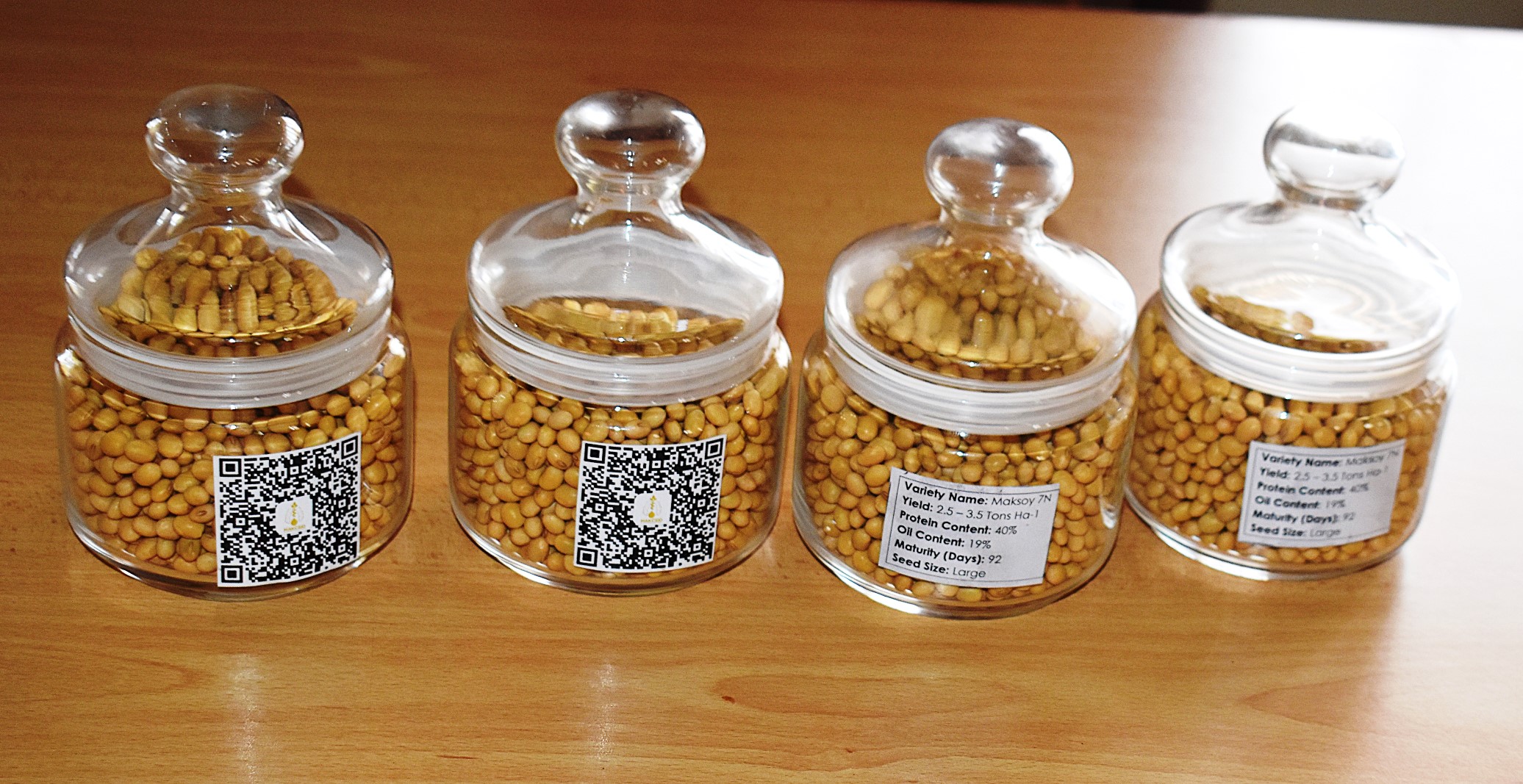
Rigorous Testing Confirms Superior Performance
MakSoy 7N, a cross between 6N and SG underwent extensive Distinctive, Uniformity, and Stability (DUS) testing across multiple seasons and locations in Uganda, including Kabanyolo (Wakiso), Nakabango (Jinja), Ngetta ZARDI (Lira), Abi ZARDI (Arua), Bulindi ZARDI (Hoima), and Mubuku Irrigation Scheme (Kasese).
The trials were conducted in accordance with the Seeds and Plant Act, Cap. 41 and the UPOV guidelines.
Results showed that the variety is clearly distinct from its closest reference, Maksoy 3N, in pod color, stem hair, and seed hilum, with uniformity meeting the 1% off-type standard, and stability confirmed across locations and seasons. On-farm trials were conducted to test performance under farmers’ management and to determine farmer preferences. Following these findings, the National Seed Certification Service (NSCS) recommended Maksoy 7N for release, providing farmers with a high-yielding and soybean rust-resistant variety.
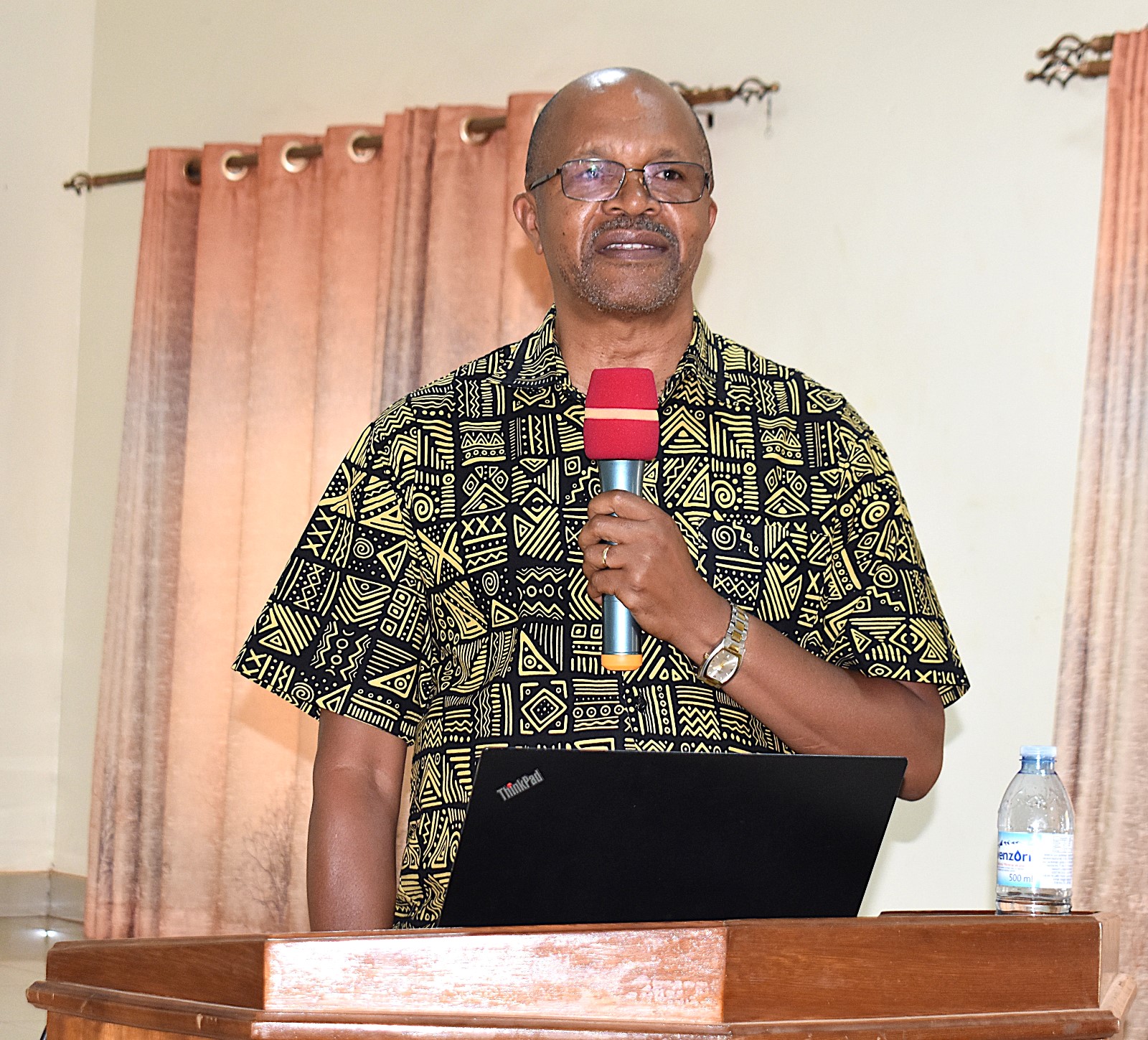
Key Reasons Behind the Development of MakSoy 7N
Soybean plays a critical role in nutrition and income generation, offering 40% protein and 20% oil. It is used in human food, livestock feed, agro-industrial applications, and soil fertility improvement, supporting climate-smart agriculture and reducing reliance on synthetic fertilizers. It also breaks pests life cycle if included in the cropping system.
Maksoy 7N was developed to address yield stagnation, rising disease pressure (including soybean rust), and growing national and regional demand for high-performing varieties. Advanced yield trials across six locations – Kabanyolo (Central), Nakabango (Eastern), Bulindi (Mid-West), Ngetta (Northern), Abi (West Nile), and Mubuku (Western) – demonstrated the variety’s strong performance in both multi-environment trials and participatory on-farm evaluations.
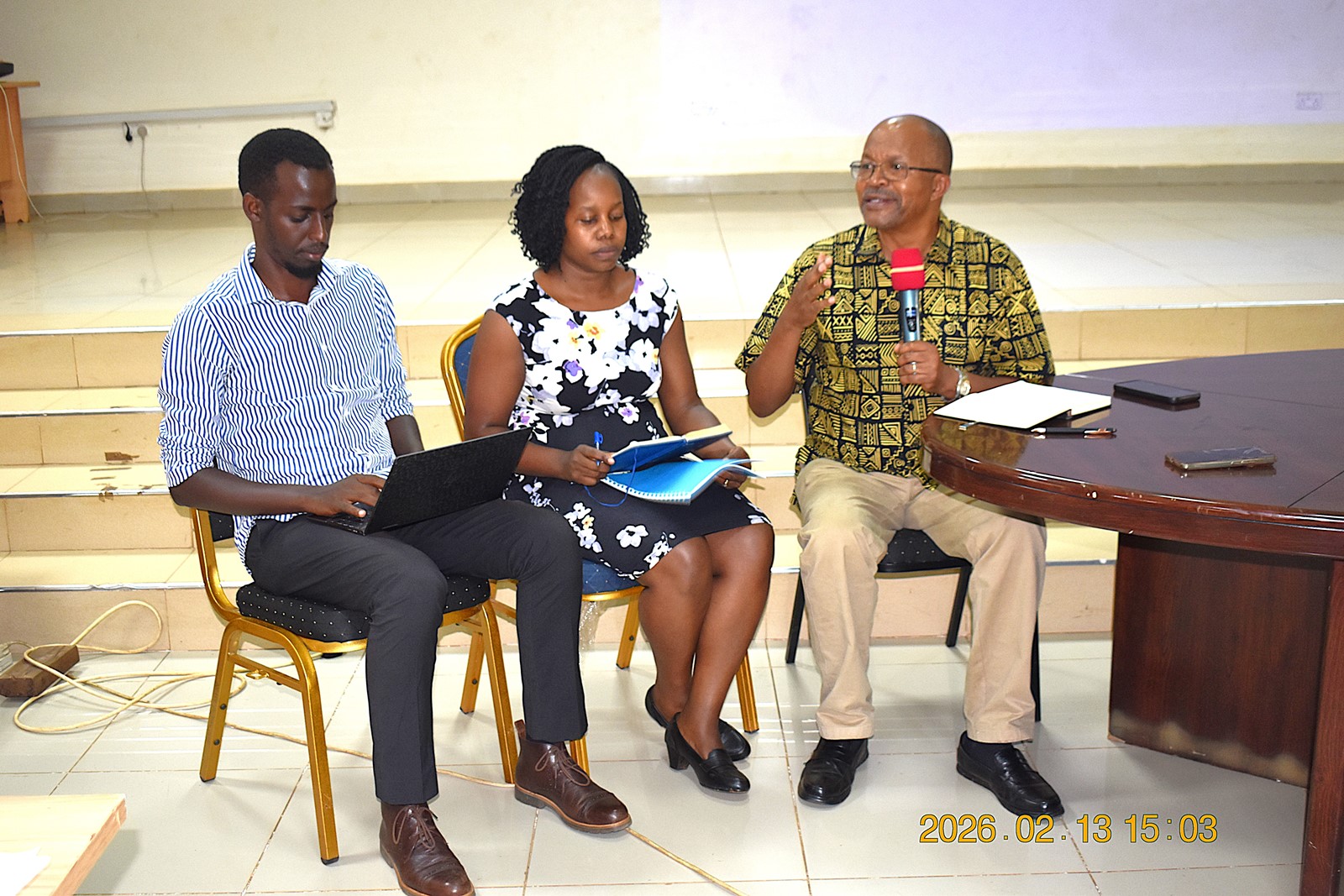
According to Prof. Phinehas Tukamuhabwa, Principal Investigator and Director of MAKCSID, Maksoy 7N demonstrates strong resistance to soybean rust and outstanding agronomic performance. The variety yields between 3-3.5 tons per hectare and matures in approximately three months. Maksoy 7N is expected to enhance national soybean productivity, increase smallholder farmer incomes, and strengthen Uganda’s soybean value chain.
Maksoy 7N joins six previously released high-yielding varieties (Maksoy 1N–6N). Impact studies by the Vegetable Oil Development Project (VODP) reveal that 93% of Ugandan soybean farmers plant Maksoy soybean varieties.
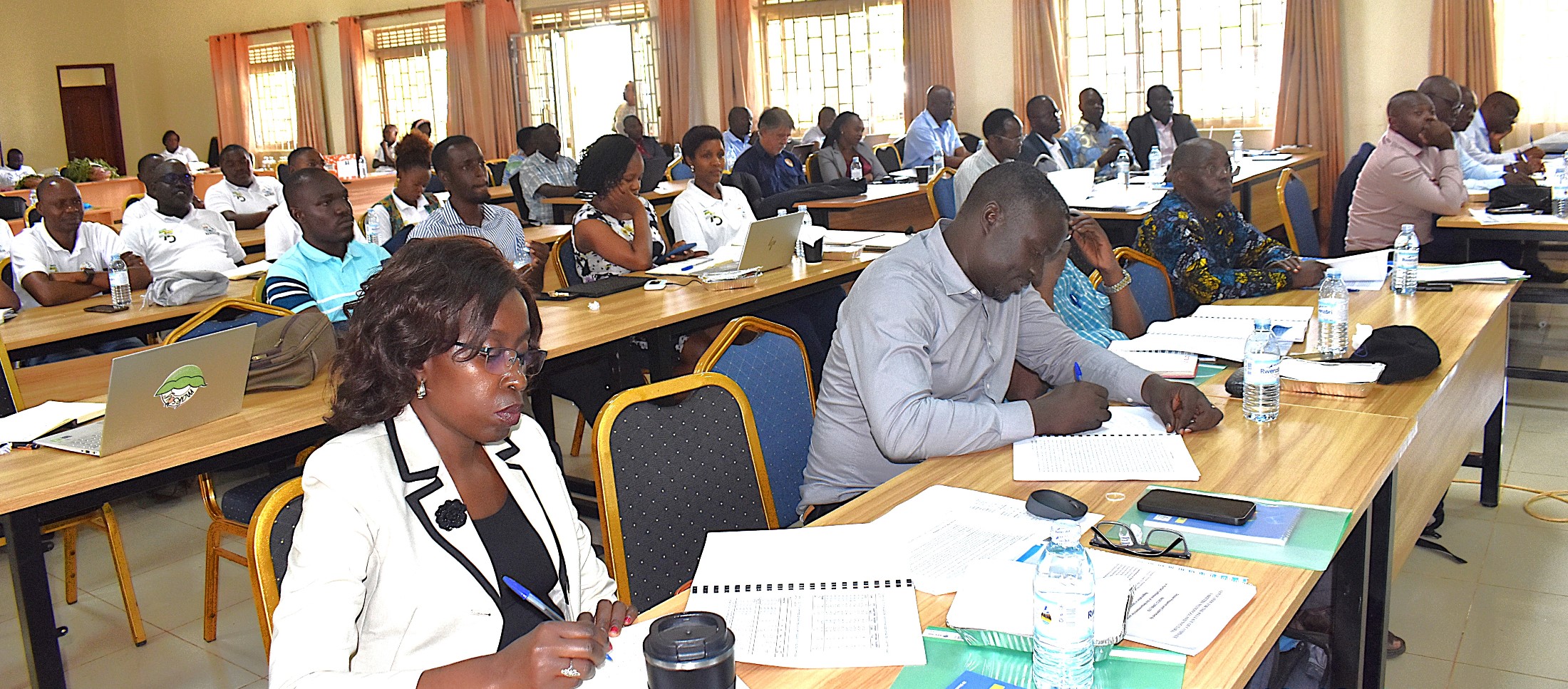
Appreciation to the partners
Prof. Tukamuhabwa expressed gratitude to the local and international development partners for their invaluable support to the project. These partners include the Ministry of Agriculture, Animal Industry and Fisheries (MAAIF), the National Oil Seeds Project(NOSP) and the International Fund for Agricultural Development (IFAD) who funded the research. Other research partners include the National Agricultural Research Organization (NARO), the Regional Universities Forum for Capacity Building in Agriculture (RUFORUM), Integrated Seed and Sector Development Uganda (ISSD Uganda), Soybean Africa Ltd, Makerere University Animal Science Laboratory, Soybean Innovation Lab, International Institute of Tropical Agriculture (IITA), and the host farmers who participated in the on-farm trials.
He also appreciated the Makerere University administration for the support extended to MAKCSID.
Honoring the Research Team
Addressing the meeting, Dr. Kikafunda, Chair of the National Variety Release Committee, praised the research team for their exceptional achievements and steadfast dedication to enhancing the nation’s food security. He emphasized the importance of their work in driving agricultural innovation and urged them to prioritize the rapid multiplication and widespread distribution of the new varieties, ensuring they reach the farmers and contribute to increased productivity and improved livelihoods across the country.
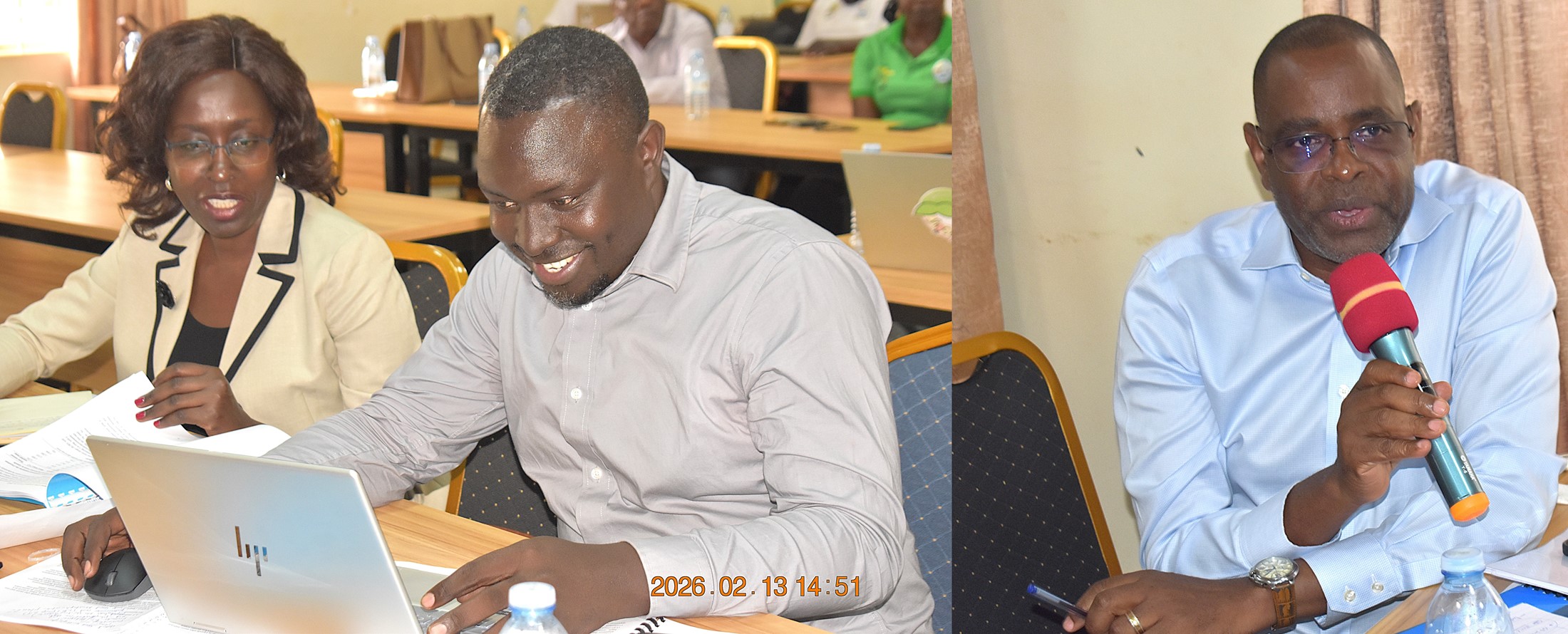
In her remarks, Dr. Mildred Ochwo Ssemakula, Head of the Department of Crop Science and Horticulture at the College of Agricultural and Environmental Sciences (CAES), Makerere University, and member of the National Variety Release Committee, lauded the team for their commitment in developing the new variety, MakSoy 7N. “This is the result of over eight years of dedicated effort. The previous variety, MakSoy 6N, was released in 2017. I deeply appreciate the team’s dedication to field activities. I also commend the former Principal of CAES, Prof. Bashaasha, for his contribution in making the MakCSID a reality, and the current Principal, Prof. Gorettie Nabanoga, for her continued support to the Centre.”
Dr. Ochwo further recognized the pivotal role of Makerere University, particularly CAES, in training critical human resources for the country, noting that most innovators and personnel in key agricultural organizations are graduates of CAES.
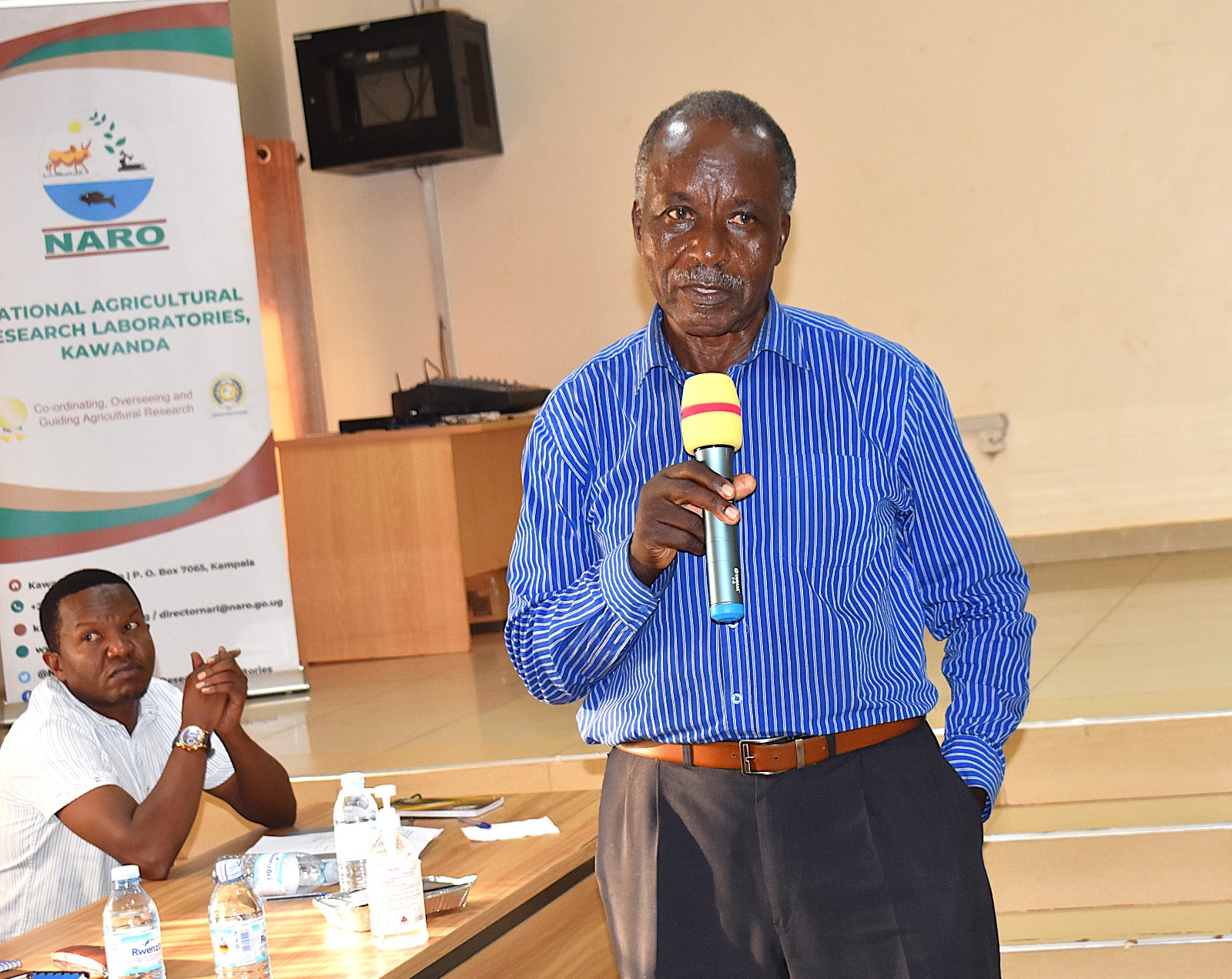
The Soybean research team includes:
- Prof. Phinehas Tukamuhabwa – Breeder & Team Leader
- Dr. Tonny Obua – Breeder
- Prof. Jeninah Karungi – Entomologist
- Dr. Geoffrey Tusiime – Pathologist
- Dr. Thomas Odong – Data Scientist
- Dr. Dennis Okii – Data Scientist/Germplasm Research
- Ms. Mercy Namara – Seed Scientist
- Mr. Alex Malaala – Agronomist
- Mr. George Yiga – Nursery Manager
- Mr. Jordan Uworthrwoth – Germplasm Maintenance
Approval of the Sweet Potato and Sorghum Varieties from NARO and NASECO
At the same event, the Committee approved three purple-fleshed sweet potato varieties – NAROSPOT 8P, 9P, and 10P – developed by the National Agricultural Research Organization (NARO). These varieties are credited for their high yields, strong disease resistance, and abundant provitamin A content. With a short growing period of just three to four months, these sweet potatoes allow farmers to achieve multiple harvests annually, boosting both productivity and profitability.
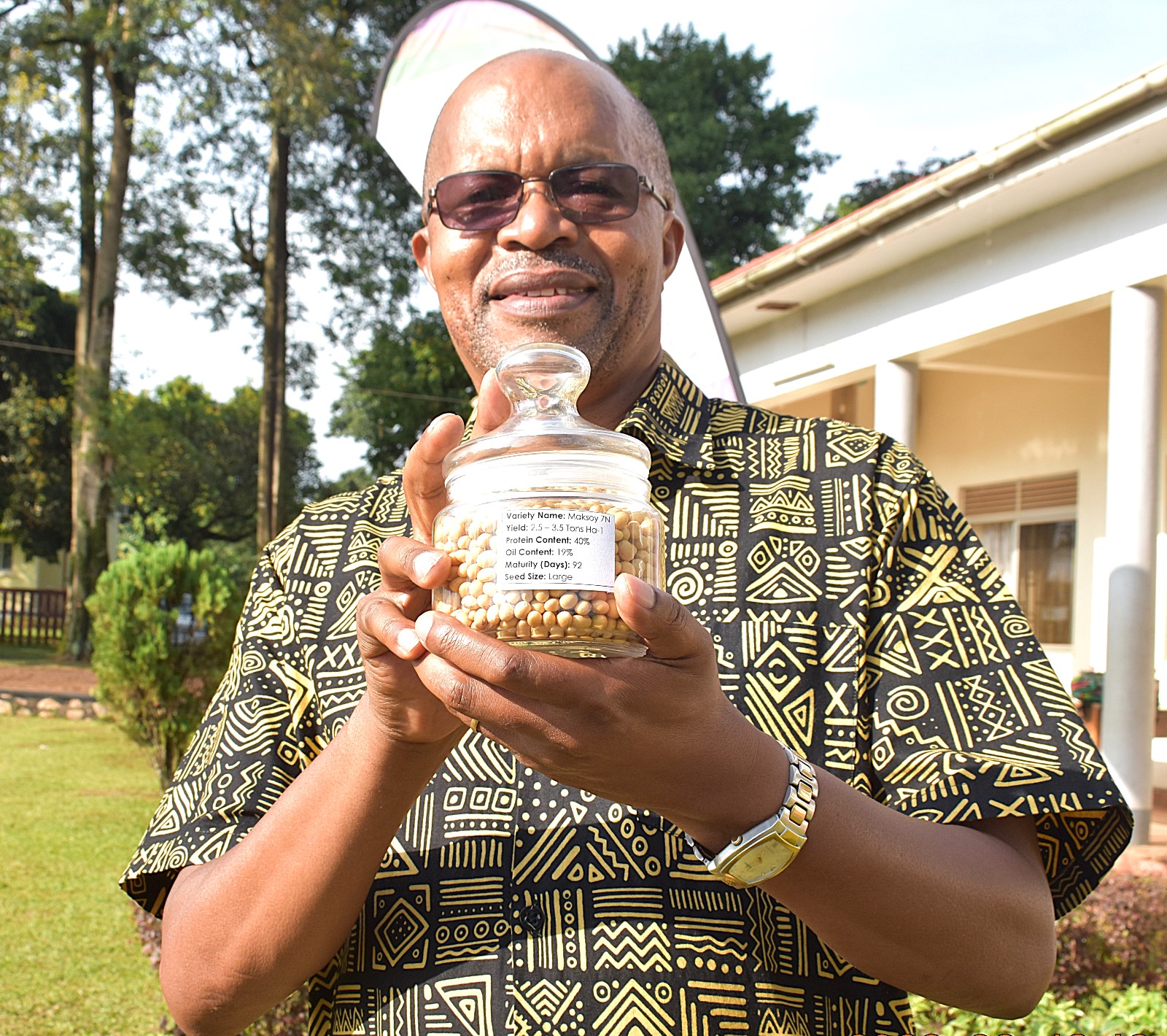
The committee also approved two high-yielding sorghum hybrid varieties, NS1 (Tongo) and NS5 (Tara), from NASECO (1996) (U) Ltd. These varieties are versatile, suitable not only for food consumption but also for livestock feed, bioethanol production, and brewing. Early reports indicate strong adoption rates among farmers, which is expected to reduce dependence on imported hybrid seeds and strengthen the local agricultural seed industry.
More photos from the event
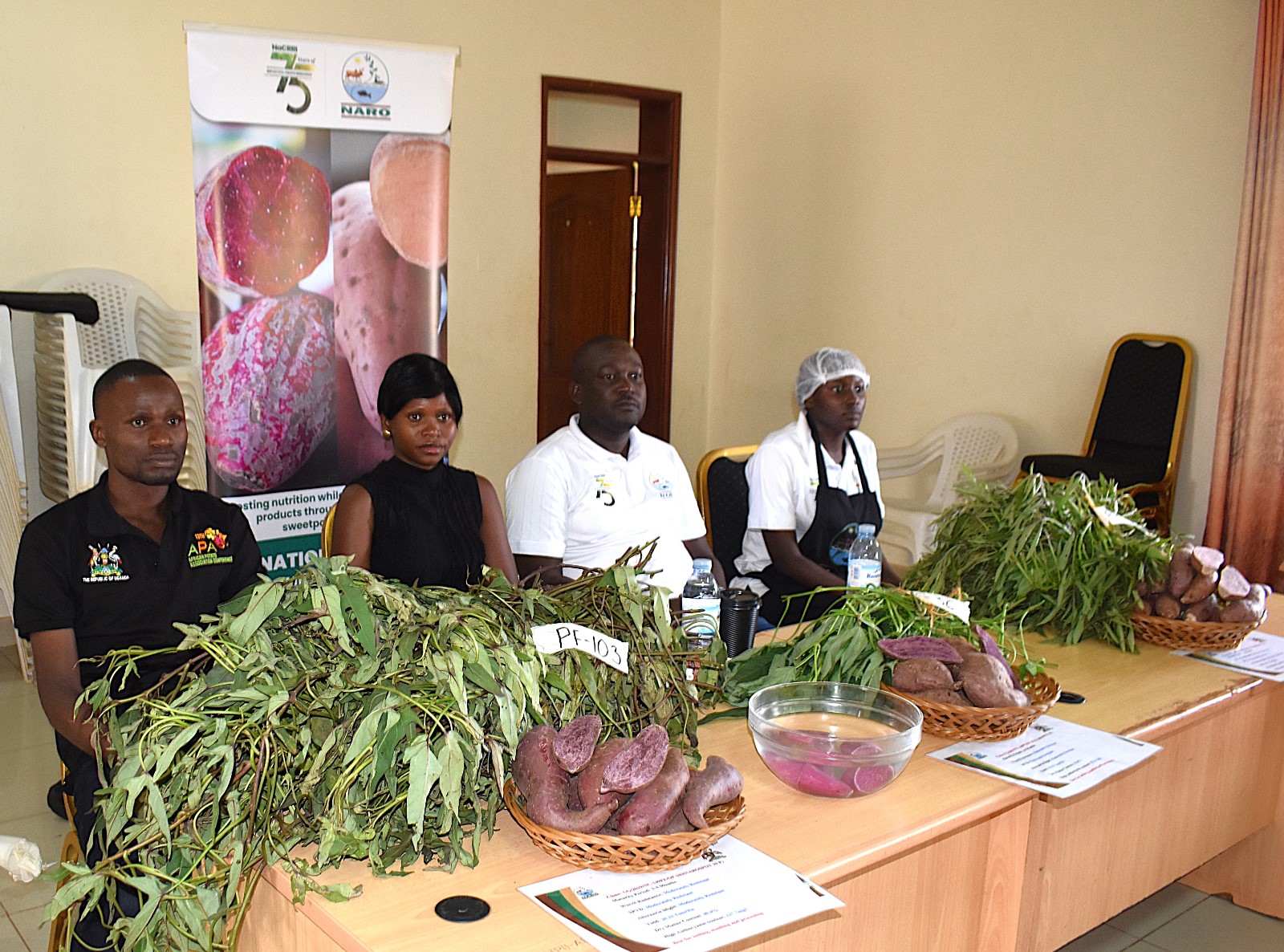
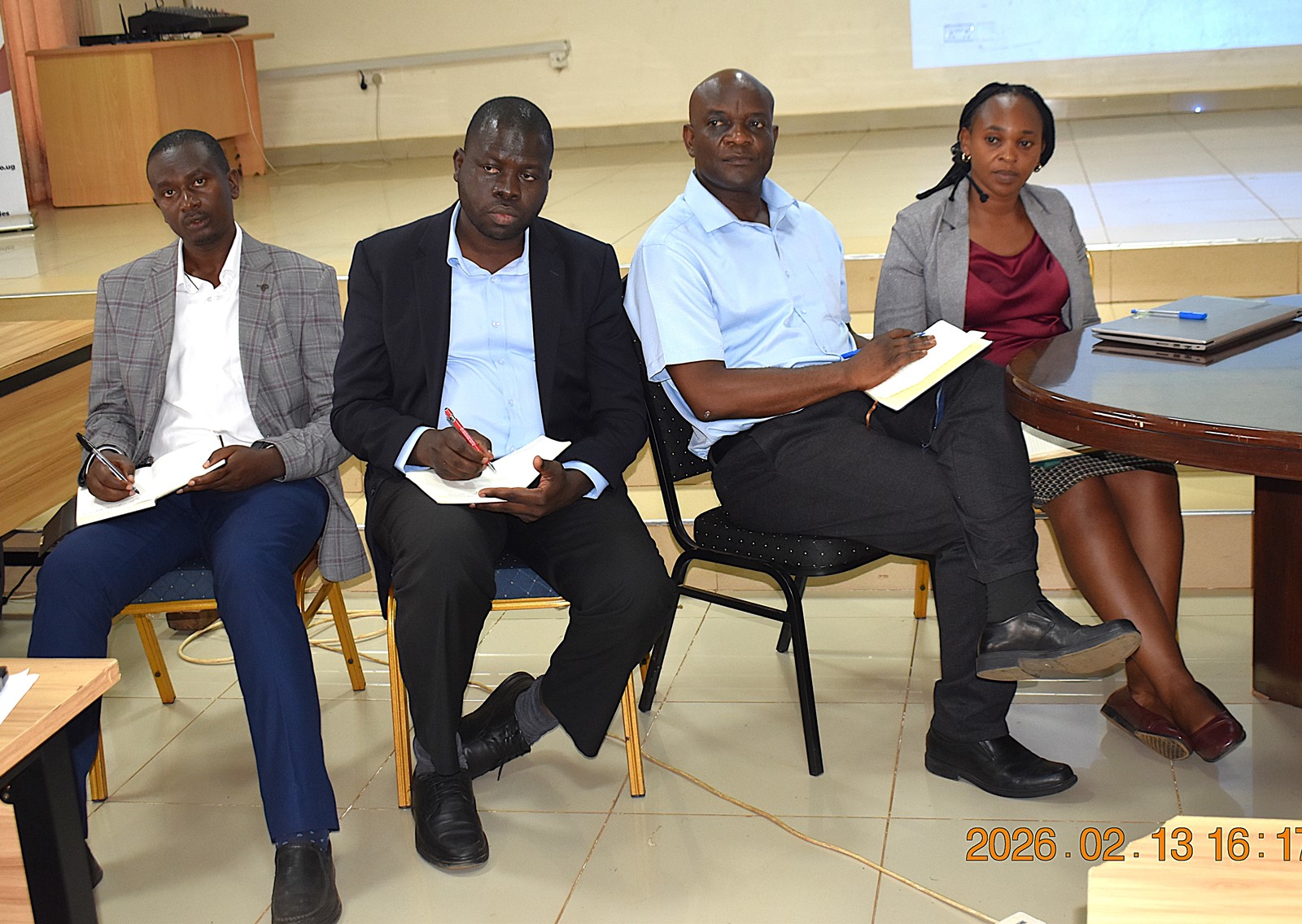
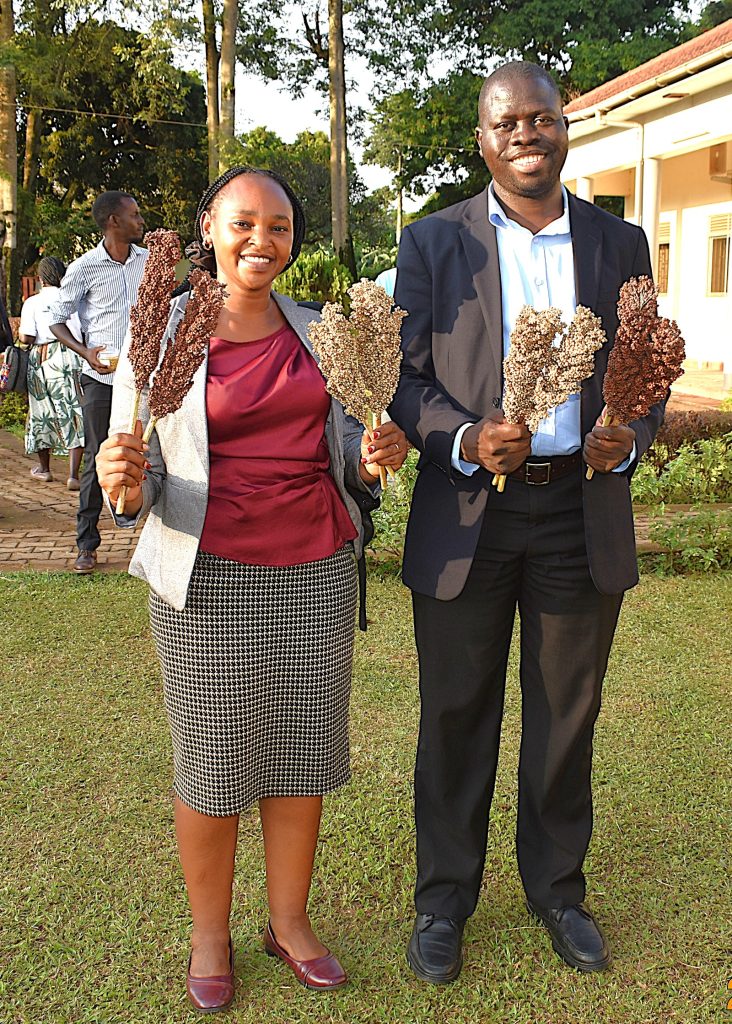
Trending
-

 Humanities & Social Sciences2 days ago
Humanities & Social Sciences2 days agoMeet Najjuka Whitney, The Girl Who Missed Law and Found Her Voice
-

 Health6 days ago
Health6 days agoUganda has until 2030 to end Open Defecation as Ntaro’s PhD Examines Kabale’s Progress
-

 Agriculture & Environment5 days ago
Agriculture & Environment5 days agoUganda Martyrs Namugongo Students Turn Organic Waste into Soap in an Innovative School Project on Sustainable Waste Management
-

 General6 days ago
General6 days agoMastercard Foundation Scholars embrace and honour their rich cultural diversity
-

 Health2 weeks ago
Health2 weeks agoCall for Applications: Short Course in Molecular Diagnostics March 2026
